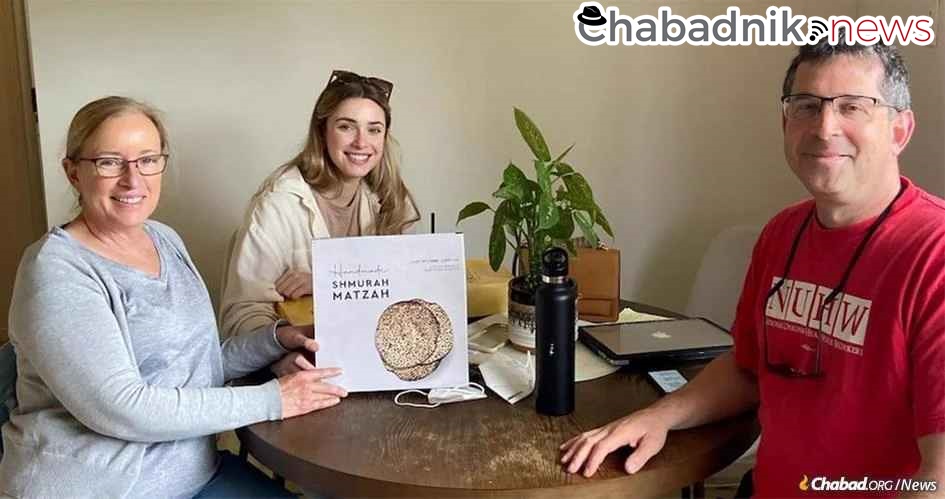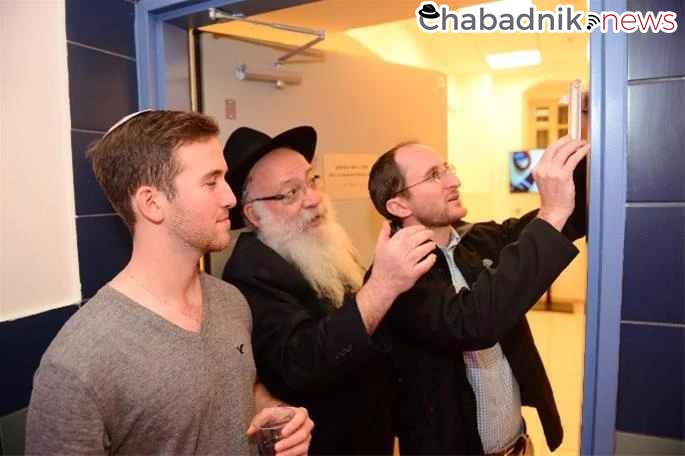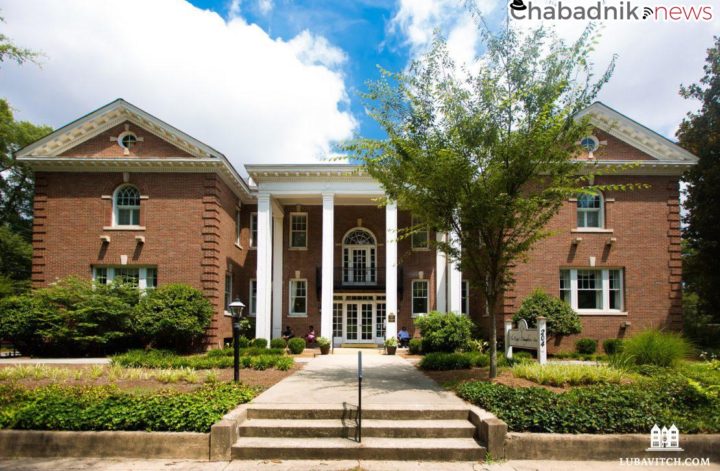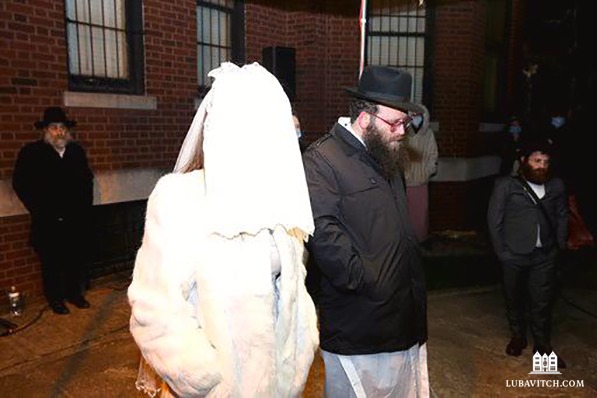Rabbi Chaim Gurevitch’s final act was to give shmurah matzah to a Jewish family

Rabbi Chaim Gurevitch was a man on a mission, to share shmurah matzah with as many Jewish people as possible. It didn’t matter if the recipient was so far from Jewish observance that he or she would not attend a Passover Seder or if they had a houseful of matzah. He personally gave a box of matzah to everyone in his swollen Rolodex.
“Matzah was his love language,” recalls a family member. “He would tell them, ‘If you have matzah already, surely you know someone else in need.’ ”
In fact, the rabbi’s final act was distributing matzah. He was fatally struck by a car a year ago while exiting his vehicle to give matzah to an acquaintance in Deal, N.J.
To honor his memory, 11,200 boxes—each one containing three shmurah matzahs—have been sent to 800 Chabad-Lubavitch emissaries to distribute among anyone who may need them for Passover, which begins this year on Friday night, April 15.
There are no strings attached, and even shipping was paid for. The organizers’’ only request is that the shmurah matzah be given to someone who otherwise would not have it.
Giving to those who would otherwise not have matzah was the calling card of Gurevitch, director of development at Colel Chabad, Israel’s oldest charity, which was founded in 1788 by the first Chabad-Lubavitch Rebbe, Rabbi Schneur Zalman of Liadi.

A Life of Service With Colel Chabad
The funds he raised supported the poorest and most vulnerable of Israeli society through the charity’s network of soup kitchens and social services, but he lavished care and attention upon anyone who chanced upon the walk-up in Brooklyn, N.Y., where he and his wife raised their nine children.
“It was the whole Gurevitch family,” says Yakov Kabacznik, a businessman from Belem, Brazil, who contributed towards the project. “I came to study in a yeshivah in New York from Belem, which has a small Jewish community. Rabbi Gurevitch, his wife and all of his children would go out of their way to make sure that I had everything I needed. They welcomed me into their family, and their home became my home.”
Fifteen years later, Kabacznik says he still lives with the inspiration he gleaned at the Gurevitch Shabbat table and tries to share it with his own children.
Kabacznik says he sees the distribution of matzah, which the Zohar describes as “the bread of faith” and the “bread of healing,” as a most fitting memorial.
“[Rabbi] Chaim taught me by example,” continues Kabacznik. “He did not just have faith, but he gave that faith to me and to others.”
For Gurevitch, giving out matzah took several months, beginning shortly after Chanukah and concluding before Passover.

The Rebbe’s Matzah Campaign
Distributing shmurah matzah is one of the earliest mitzvah campaigns initiated by the Rebbe—Rabbi Menachem M. Schneerson, of righteous memory.
Just days before Passover 1954, the Rebbe lamented the fact that shmurah matzah had become virtually nonexistent and exhorted Jewish leaders, “rabbis, shochtim (‘ritual slaughterers’), reverends, synagogue caretakers,” and indeed every individual, to do their utmost to distribute hand-baked shmurah matzahs in their communities. The Rebbe said that it had once been customary for rabbis to hand out shmurah matzahto their congregants, and he wished to reinstate the practice. At the very least, he encouraged them to give every individual six matzahs—three for each Seder night—or even two, so that they would have one per night.
Shmurah means “guarded”; the matzah with that name is made from flour that’s been carefully guarded from moisture from the moment the grain was harvested and is hand-produced by bakers who take extreme care that the dough does not rise during the baking process. Most shmurah matzah is baked the old-fashioned way in a handful of places in the United States, Israel and Europe, including a bakery still functioning in Ukraine. It represents the desire of a people to fulfill G‑d’s will without the intrusion, complication and impersonality of a machine.
Over the course of the past seven decades, largely through the efforts of Chabad emissaries all over the world, awareness of—and demand for—authentic shmurah matzah has risen astronomically.
Yet for Gurevitch, distributing matzah remained deeply personal, an opportunity to connect to another through mitzvah observance.
“He didn’t just raise money,” says Rabbi Sholom Duchman, director of Colel Chabad, “he brought neshamos [‘souls’]. He was the embodiment of a true Chassid—always joyful and optimistic.”




